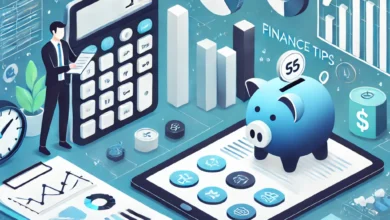Loans vs. Credit Cards: Which Option is Better for Your Short-Term Financial Needs forpchub.com

When it comes to addressing short-term financial needs, two of the most common options people consider are loans and credit cards. Both offer access to funds but differ significantly in terms of functionality, repayment structure, and costs. Choosing between them depends on your specific financial situation and requirements. Let’s dive deeper into loans vs. credit cards to determine which option might be better for you.
Understanding Loans
Loans are financial tools that provide a lump sum of money, which is repaid over a fixed term with interest. They come in various forms, such as personal loans, payday loans, or secured loans, and typically require an application and approval process.
Advantages of Loans
- Structured Repayment Plan
Loans provide a fixed repayment schedule, making it easier to plan your monthly budget. Each installment reduces the loan principal and interest systematically. - Access to Higher Loan Amounts
If you need a large sum of money, loans are often a better option compared to credit cards. Personal loans, for example, can provide thousands of dollars depending on your creditworthiness. - Lower Interest Rates
Many personal loans offer lower interest rates compared to credit cards, especially for borrowers with good credit scores. This can save you money over the life of the loan. - Predictability
Loans have fixed terms and payments, so you’ll know exactly when the debt will be paid off, which can offer peace of mind.
Disadvantages of Loans
- Approval Time
Loans often require a detailed application process and credit checks, which may take several days. This makes them less suitable for immediate financial needs. - Less Flexibility
Loans are not as flexible as credit cards. You borrow a fixed amount upfront, and you cannot adjust it later. - Associated Fees
Some loans come with additional costs, such as origination fees, late payment fees, or prepayment penalties if you pay off the loan early.
Understanding Credit Cards
Credit cards provide a revolving line of credit that you can use repeatedly up to your credit limit. They are widely used for everyday expenses, emergencies, or even building credit history.
Advantages of Credit Cards
- Instant Access to Funds
Credit cards allow immediate access to money whenever needed, making them a convenient choice for emergencies or unexpected expenses. - Rewards and Benefits
Many credit cards come with attractive perks, such as cashback, travel rewards, and purchase protection. These rewards can add value to your spending. - Flexible Usage
Unlike loans, credit cards let you borrow as much or as little as you need, as long as you stay within your credit limit. - No Collateral Required
Most credit cards are unsecured, meaning you don’t need to pledge any assets as collateral.
Disadvantages of Credit Cards
- Higher Interest Rates
If you don’t pay your balance in full by the due date, credit cards can charge high-interest rates, which can quickly lead to significant debt. - Risk of Overspending
The ease of using credit cards can tempt users to spend more than they can afford, leading to financial strain. - Minimum Payment Trap
While credit cards allow you to pay only a small portion of your balance each month, carrying forward balances can lead to high-interest charges and prolonged debt repayment.
Loans vs. Credit Cards: Which Is Better for Short-Term Needs?
Both loans and credit cards serve different purposes, and choosing the right one depends on your specific financial situation. Here are some scenarios to help you decide:
When Loans Are the Better Option
- You Need a Larger Sum of Money
If you’re planning to cover significant expenses, such as medical bills, home improvements, or consolidating debt, a loan might be the right choice. - You Want Predictable Payments
Loans provide fixed monthly payments and terms, making it easier to budget your expenses and know when the debt will be cleared. - You Have a Good Credit Score
Borrowers with excellent credit can secure loans with lower interest rates, making them more affordable compared to credit cards.
When Credit Cards Are the Better Option
- You Need Funds Immediately
For emergencies or small purchases, credit cards provide instant access to money without the need for a lengthy approval process. - You Can Pay Off the Balance Quickly
If you’re confident you can repay the balance within the interest-free period, a credit card can be a cost-effective solution. - You Want to Earn Rewards
For everyday expenses, credit cards can offer cashback, points, or travel benefits, adding extra value to your spending.
Key Factors to Consider
- Cost of Borrowing
Compare the interest rates and fees associated with loans and credit cards. Loans typically have lower interest rates, but credit cards might be better if you plan to pay off the balance quickly. - Repayment Terms
Decide whether you prefer the structured repayment of a loan or the flexibility of a credit card. - Credit Score Impact
Both loans and credit cards affect your credit score. Ensure you make timely payments to avoid negative impacts on your credit history. - Purpose of Funds
The nature of your short-term financial need should guide your decision. Large, planned expenses often favor loans, while smaller, spontaneous needs are better suited to credit cards.
Read also: Little Caesars State Tax ID Mesa Arizona: A Complete Guide for Business Owners
Conclusion
Choosing between loans and credit cards for your short-term financial needs ultimately depends on your circumstances. Loans offer structured repayment and lower interest rates, making them ideal for larger expenses, while credit cards provide flexibility and immediate access to funds for smaller, everyday needs.
Evaluate your financial requirements carefully before deciding. For more insights on managing your finances and selecting the right financial tools, visit forpchub.com and take control of your financial journey.




